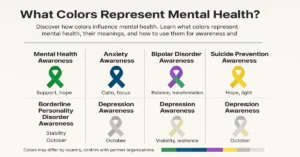Key Intake
Q1: What is a debased mind, and why does it matter today?
A debased mind is a state of moral corruption described in Romans 1:28, where rejecting God’s truth leads to distorted thinking, and it matters today because it explains why society often calls evil good and truth irrelevant.
Q2: Is a debased mind the same as a reprobate mind?
Yes, “Reprobate mind” (KJV) and “debased mind” (ESV) translate the same Greek phrase.
Q3: Can a Christian have a debased mind?
Not in the full sense, but believers can slip into debased thinking patterns if they resist God’s truth.
Q4: What is the opposite of a debased mind?
A renewed mind (Romans 12:2) marked by clarity, sound judgment, and alignment with truth.
Q5: Why does Paul mention homosexuality in Romans 1?
It’s one example of “degrading passions” after rejecting God, not the sole sign of a debased mind.
Q6: Does God create people with debased minds?
No, he gives them over as judgment for persistent rebellion.
Table of Contents
Introduction
What is a debased mind? At its core, it is a profound biblical term describing a state of moral and spiritual corruption that results from rejecting God’s truth. Paul explains in Romans 1:28 that God “gave them over” to worthless thinking after repeated rebellion. In today’s world, where moral lines often blur, this concept speaks directly to theology students, pastors, parents, and anyone seeking clarity about human nature and God’s judgment.
Recent data underscores the urgency, Pew Research notes that 65% of Americans say morality is “relative,” echoing Paul’s warning of distorted conscience. Throughout history, authority voices like Augustine, Calvin, and Aquinas have tied this passage to humanity’s fallen nature. The question remains, why does this matter so much for us today? Let’s break it down.
Quick Answer
A debased mind is a state of rejected moral reasoning God allows after willful rebellion, described in Romans 1:28, where people lose the ability to discern right from wrong and embrace moral corruption.
It’s the theological equivalent of being “handed over” to distorted thinking as both consequence and warning. This means the debased mind is not just poor judgment, it is the loss of God’s restraining grace, where evil becomes celebrated and truth despised.
What does it mean to have a debased mind?
To “have a debased mind” translates the Greek adokimos nous, meaning “tested and found worthless.” Think of it like a counterfeit coin rejected by merchants. Paul’s wordplay in Romans 1:28 shows the shift: because people disapproved of keeping God’s truth, He gave them a disapproved mind in return.
- Greek Roots: a- (not) + dokimos (approved after testing).
- Judicial Response: God hands people over to their chosen path, removing His restraint.
In practice, this explains why some celebrate behaviors that run against both natural law and divine design.
Want a clear breakdown of Romans 1:28? This video unpacks what it means when God ‘gave them over’ to a reprobate mind. Try watching:
→What does it mean in Romans 1 that God gave people up to a reprobate mind?
What are the signs of a debased mind?

Romans 1:29–31 lists 21 traits of the debased mind. These aren’t only extreme crimes, they show up in everyday life.
Relational Breakdown:
- Gossip, envy, malice
- Coldness without natural affection
Intellectual Pride:
- Arrogance, disobedience, foolish reasoning
- Calling evil good and good evil
Moral Inversion:
- Approving sin in others
- Normalizing wickedness as progress
Truth is, most people miss this: the clearest sign is celebrating what God calls destructive.
What is the root cause of a debased mind?
A debased mind doesn’t appear overnight. Romans 1 shows a three-stage downward spiral:
- Suppressing Truth (vv. 18–23): Ignoring God’s clear revelation in creation.
- Idolatrous Exchange (vv. 24–27): Worshiping creation instead of Creator.
- Complete Rejection (vv. 28–32): Removing God from knowledge, leading to moral corruption.
The pattern is simple: truth suppressed → idolatry embraced → morality inverted.
Can a debased mind be healed?
Yes. A debased mind can be renewed through the gospel. Salvation is always God’s initiative, not human self-repair.
- Biblical Example: Paul the persecutor became Paul the apostle.
Process of Renewal:
- God grants repentance (2 Timothy 2:25)
- The mind is transformed (Romans 12:2)
- The Spirit regenerates new desires
- Ongoing sanctification reshapes thinking
That’s where it gets hopeful: even the most corrupt heart isn’t beyond grace.
How does a debased mind differ from mental illness?

A debased mind is a theological category, not a clinical one. Mental illness deals with biology, chemistry, and trauma, while the debased mind deals with rebellion against God. Confusing the two risks harming both theology and mental health.
Myth vs Fact:
- Myth: Debased mind = ancient term for mental illness.
- Fact: They are different: one moral, one medical.
Debased Mind vs. Mental Illness
| Factors | Debased Mind | Mental Illness |
| Primary Cause | Willful rejection of God | Genetics, trauma, brain chemistry |
| Nature | Spiritual, moral corruption | Neurological, psychological |
| Solution | Repentance, Gospel renewal | Therapy, medication, support |
| Biblical Example | Pharaoh’s hardened heart | Saul’s tormenting spirit |
What does the Bible say about a debased mind?
Romans 1:28 defines it directly: “God gave them over to a debased mind.” It is the third “giving over” in Romans 1, after impurity and degrading passions.
Other biblical parallels:
- Pharaoh’s hardened heart (Exodus) shows judicial hardening.
- Isaiah 5:20 describes calling evil good.
- 2 Timothy 3 lists end-times corrupt thinking.
Put simply: the Bible presents the debased mind as the endpoint of rejecting God’s truth.
What is an example of a debased mind in modern society?
Look around: debased thinking shows when culture celebrates sin as identity or progress. Examples include:
- Truth Relativism: “My truth” over God’s truth.
- Sexual Revolution: Normalizing practices Scripture condemns.
- Authority Rejection: Treating rebellion as virtue.
Balanced response: Christians shouldn’t gloat but respond with grace and gospel hope. Remember, all of us were once far from God.
How to Guard Against a Debased Mind?

Guarding against a debased mind means soaking in truth while filtering lies.
Practical Checklist:
- Saturate in Scripture: Daily Bible intake (Deut. 6:7)
- Pray for Discernment: Ask God for wisdom in choices
- Curate Community: Stay rooted in healthy church life
- Evaluate Media: Discern what you watch, read, and share
- Teach Children: Normalize hard conversations at home
What hope exists for moral renewal?

History shows societies can turn when hearts change. Great Awakenings in America, the Welsh Revival, and the Korean Revival reshaped communities.
- Mechanism: Changed hearts → revived churches → transformed cultures.
- Application: Preach gospel, disciple deeply, pray for renewal.
The bigger hope? Christ’s return brings ultimate restoration. Until then, the church serves as salt and light in a godless culture.
Sources
- BibleHub: Comprehensive biblical commentary and definitions on what is a debased mind
- Got Questions: Trusted Christian resource explaining Romans 1:28 and the meaning of a debased mind (read here)
- Ligonier Ministries: Theological insights on humanity’s fallen condition and the implications of a debased mind
- Bible Study Tools: Detailed scriptural analysis on the concept of the reprobate mind
- eBible: Community-driven biblical Q&A offering clear answers about God “giving them over” (explore more)
Conclusion
Understanding what is a debased mind isn’t just theological trivia, it explains why cultures collapse, why truth feels relative, and why grace is urgent. Paul’s warning in Romans 1 shows God’s justice, but also His mercy. The opposite of a debased mind is a renewed one, and through Christ, even the darkest conscience can be restored.
For theology students, pastors, parents, or faith seekers: let this be a call to clarity, not despair. Truth is still truth. Grace is still stronger. And renewal is still possible.
Author Bio
Daniel Cross is a Christian Writer & Bible Teacher with an experience of 12+ years teaching Scripture and writing on biblical theology. Daniel writes to help believers connect timeless Scripture with today’s challenges.
For more information about What Is a Debased Mind? Try having aglance on what experts say about it?











